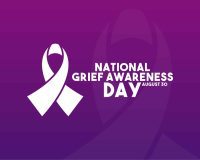
From The Conversation Project.
Three Things You Can Do Now:
This is a challenging time. There are many things that are out of our control. But there are some things we can do to help us be prepared – both for ourselves and the people we care about. Here are three important things each of us can do, right now, to be prepared.
Pick your person to be your health care decision-maker.
Choose a health care decision-maker (often known as a proxy, agent, or health care power of attorney) – a person who will make medical decisions for you if you become too sick to make them for yourself.
- Here’s a simple guide to help you choose a health care decision-maker.
Have a talk with your health care decision-maker to make sure they know what matters to you.
- Make a plan to talk with your decision-maker as soon as possible. Phone calls or video chats are good if you don’t live with that person.
Fill out an official form naming your health care decision-maker. Give one copy of the filled-in form to your decision-maker and one copy to your health care team.
- Get a free health care decision-maker form here or download a form for free from your state attorney general website.
- In a time of social distancing, you may not be able to create an official legal document. That’s okay! Writing it down is still better than nothing!
Talk about what matters most to you.
Talk with your important people and decision-maker about what matters most.
- The Conversation Starter Kit can help you get ready to talk to others about what matters most.
- If you have already completed the Conversation Starter Kit or have an Advance Directive, review it with your loved ones to see if you want to make any changes or updates.
After you talk to your loved ones about what matters, talk to your health care team.
- Call your primary care provider or specialist to set up a televist to talk about this. Knowing what matters to you helps your care team provide better care that’s right for you.
Think about what you would want if you become seriously ill with COVID-19.
People who are older or have chronic medical conditions are more likely to become very sick if they get COVID-19. Some will recover with hospital care, but even with ventilator support many will die. Think about what you would want if you became very sick at this time.
What would be most important to you?
What are you most worried about?
What is helping you through this difficult time?
If you became very sick with COVID-19, would you prefer to stay where you live or go to the hospital?
If you chose to go to the hospital, would you want to receive intensive care in the hospital?
List any other questions or concerns you want to bring up with your friend/family/provider.
You Should Know:
First and foremost, do everything you can to stay personally safe and protect others!
Follow the CDC recommendations for social distancing: stay home, clean your hands often, avoid close contact, cover coughs and sneezes.
Most people who get COVID-19 get a mild or moderate illness and don’t need to go to the hospital.
Those who do get a severe case of COVID-19 are mostly people who are older or have other medical problems.
Some people, especially those who are young and healthy, will get better with routine hospital care. But many, especially those who are older and sicker, are not likely to survive even with a ventilator.
Those who survive may be left with disabilities, both from damaged lungs and deconditioning after intensive care. Despite weeks or months in the hospital or rehabilitating in a nursing facility, survivors may not regain enough strength or function to return home.
People who do not want intensive care should receive comfort care. Comfort care may be possible at home or in a nursing facility, especially with the care and support of hospice.
Many hospitals are overcrowded and are not allowing visitors, so if you can, bring a smartphone, laptop or tablet to help communicate with your important people. In certain parts of the country, access to the hospital or intensive care may become limited in the coming weeks.




